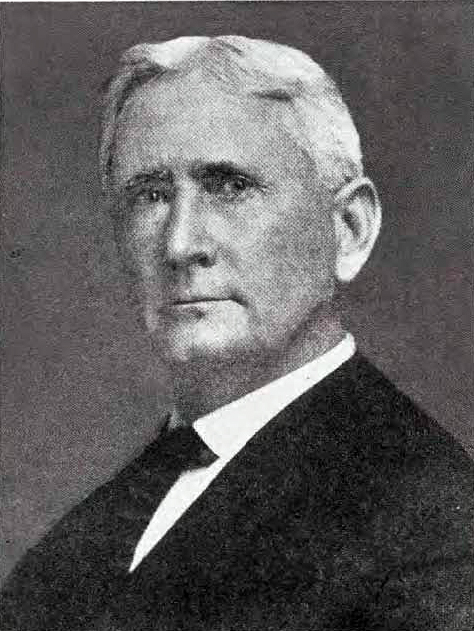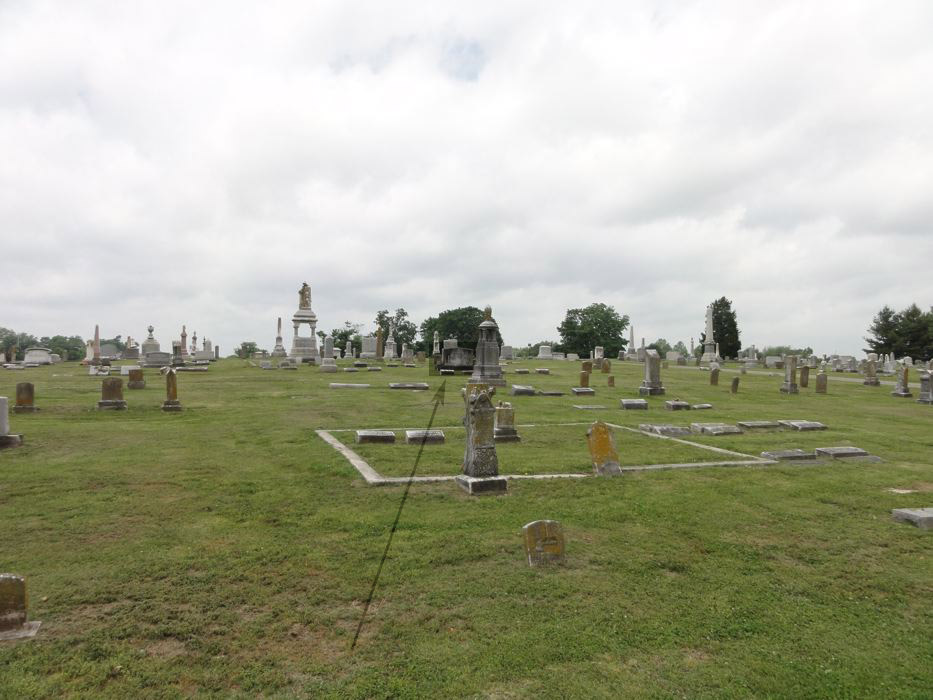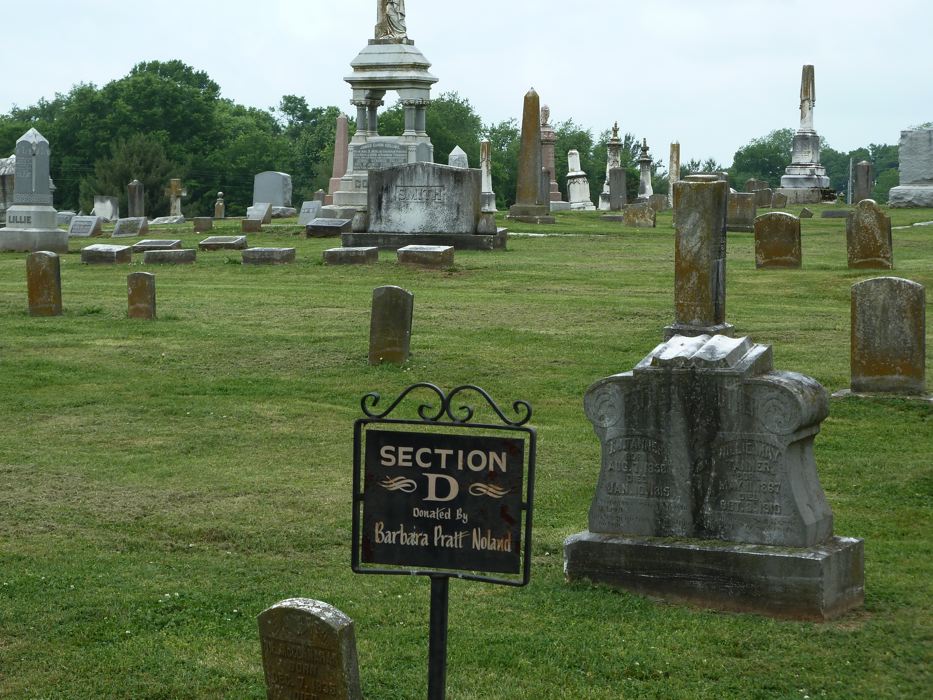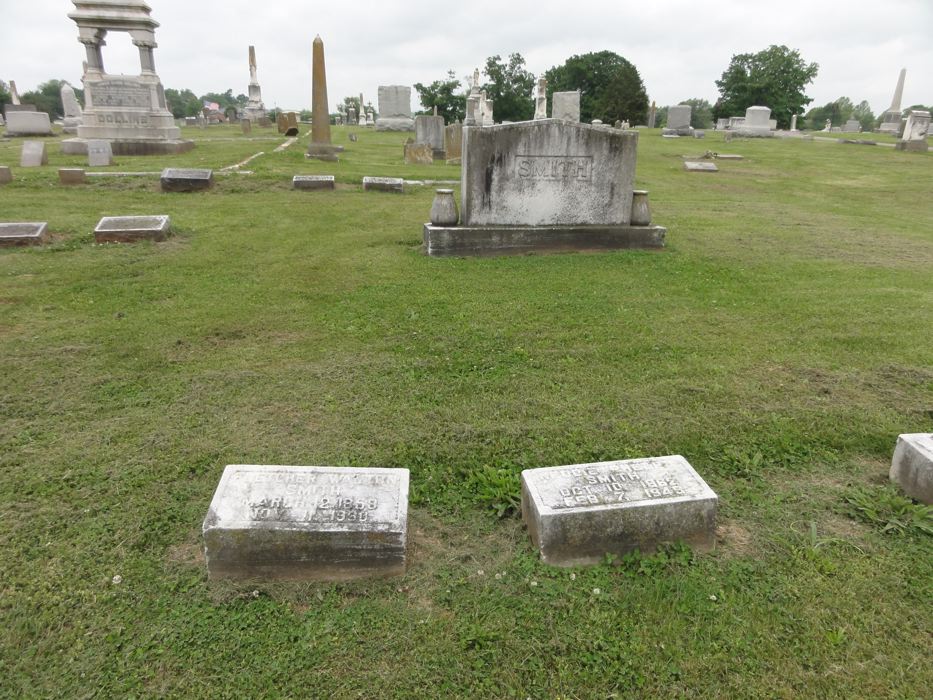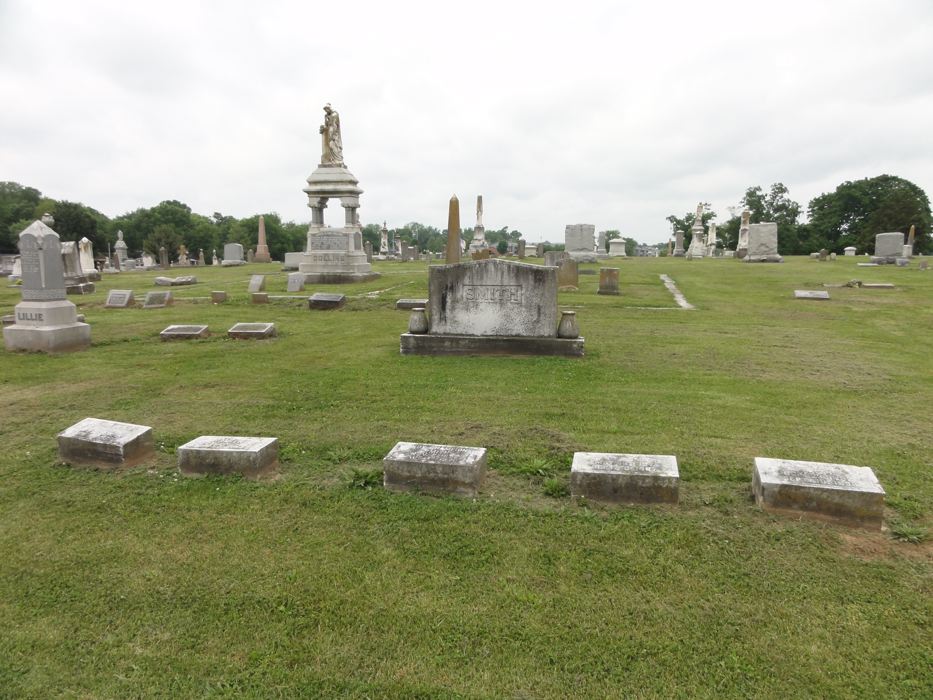Fletcher Walton Smith
1858-1930
![]()
The Life Of F.W. Smith
The church in Middle Tennessee and Nashville has been blessed during the present generation with a galaxy of great men—D. Lipscomb, E. G. Sewell, J. C. McQuiddy, E. A. Elam, T. B. Larimore and F. W. Smith—who have passed to their eternal reward. All of these good men had their characteristics which helped to make them great men; F. W. Smith ranked in keenness of intellect, cogent logic, and tenderness of heart as a peer of any of them. Fletcher Walten Smith was born March 12, 1858. He was the youngest of thirteen children and the last one to answer the call to come up higher. His parents were Champion E. Smith and Mary Walten Smith. They lived near Fayetteville, in Lincoln County, Tennessee, when F. W. Smith was born. His parents were large slave owners before the Civil War and were considered wealthy for that time. One of his maternal ancestors, George Walton, was a signer of the Declaration of Independence and later served as governor of the State of Georgia. Brother Smith came of a highly respected family. When the Civil War closed, it left the Smith family in poverty, and Brother Smith knew the sting of poverty, however, he was trained to love honest toil. He inherited an aristocratic air and dignified the labor in which he engaged. Those who observed his carriage could easily judge that he was a man of distinction.
F. W. Smith was married to Miss Nettie A. Phelps, October 11, 1879. She was the daughter of Doctor A. M. Phelps. At the time of his marriage he was engaged in the grocery business and was making good success through his industry and shrewd business qualities. He had given little or no thought to the religious life at the time of his marriage.
In 1881, two years after he had married, Brother J. C. McQuiddy went to Mars Hill in Giles County, Tennessee, near Pulaski, to hold a meeting. Young Smith became interested and soon became a Christian; he made the good confession and was baptized into Christ by Brother W. H. Dickson, who was assisting Brother McQuiddy in the meeting. Soon after he was baptized he began to take public part in the worship. He had very few opportunities to go to school; there were very few schools in his younger days and he had not the means to go to school. He was a student of the Bible from the time that he became a Christian to the close of his life. Through the encouragement of older brethren he decided to quit the grocery business and give all of his time to preaching the gospel.
He moved to Lynnville, Tennessee, and helped the congregation there. He was not a "stationed" preacher for the church at Lynnville, but preached much for it. He did evangelistic work in Lincoln, Giles, and Marshall Counties, while he lived at Lynnville. He preached all over these counties and strengthened the churches that were there at that time and helped to establish many others. He was a successful preacher from the beginning; he developed rapidly into a strong gospel preacher. His mode of travel then was on horseback, but oftentimes he walked many miles to his appointments. He preached the gospel because he loved the truth of God and felt like Paul: "Woe is unto me, if I preach not the gospel." All of the preachers of his day endured great hardships in order to preach. His labors gradually extended beyond the confines of a few counties in Middle Tennessee to other States.
He moved from Lynnville to Princeton, Kentucky. He labored with the church there for some years and evangelized in the surrounding territory. There was not a town or village in that part of Kentucky in which F. W. Smith did not preach the gospel. At that time the line was not drawn so closely between those who used instruments of music in the worship and worked through Missionary societies and those who did not use these innovations. Brother Smith worked with the society brethren for a time until he learned better. Later he said that he had not studied the question in the light of the New Testament. He found the churches in Kentucky using the instrument and working through Missionary societies, and he fell in line with them without giving the matter much thought.
His next move was from Princeton, Kentucky to Clarkville, Tennessee. He remained at Clarksville for a few years and then moved to Louisville, Kentucky. He continued to work with those who used the instrument of music in the worship at these places. His services were in demand, and he preached much in the surrounding country. He was a successful evangelist, and through his labors many were brought to Christ; churches were strengthened and edified through his teaching. In 1891 he moved from Louisville, Kentucky, to Franklin, Tennessee. He began work with the Church at Franklin and continued his services there for nine years. The church greatly improved during his sojourn there. He left Franklin in 1900 and moved to McMinnville, Tennessee. He preached for the church at McMinnville for three years. His labors were blessed with visible results and greatly strengthened at these places. In 1903 he moved from McMinnville to Nashville, Tennessee, so that he might patronize the Nashville Bible School. He resided in Nashville and near Nashville the remainder of his life.
When he moved to Ashville he began work again with the church at Franklin, Tennessee. He labored with this church the remainder of his life, or twenty-seven years. In all, he worked with the church at Franklin, Tennessee, thirty-six years and did a monumental work. No church ever loved a preacher more than the Franklin Church loved F. W. Smith, and no preacher ever loved a church more than Brother Smith loved the church at Franklin. While he labored with the church regularly at Franklin, Brother Smith found time to do much evangelistic work in all of the Southern States and in many of the Northern States and Canada. He was always successful in bringing people to Christ, and seldom closed a meeting that he did not have a large number of additions. In a great number of his meetings he had more than a hundred additions and in a few meetings he had as many as a hundred and fifty additions.
In the evangelistic field Brother Smith was eminently successful, and in laboring with a congregation he was a great factor in the life of the church as is attested by the fact that he remained with the Franklin church thirty-six years. Brother Smith was as great in the field of religious literature as he was in the evangelistic field. He had no collegiate training, yet he wielded a trenchant pen. As a ready writer he approached a subject with courage and expressed himself with clearness. When Brother Smith wrote it was indeed MULTUM IN PARVO–much in a little space. As editor of the Gospel Advocate, his writings showed clearness of thought and a firm grasp on the subject upon which he wrote. He edited one of the Sunday-school quarterlies for a number of years. His presentation of the lesson was clear, simple, and brief; his lessons were easily understood.
He wrote many pamphlets which were eagerly read and accomplished much good. He was the author of the book, "Why the Baptist Name." This was a discussion between Doctor George A. Lofton and F. W. Smith on the principle tenets of the Baptist faith.
Brother Smith was a kind-hearted, lovable man. Oftentimes he was misunderstood, because much of his writings as an editor was on controversial questions. He was powerful in argumentation and had no mercy on error. He loved the truth, knew the truth, and lived the truth out in his life. He had the courage of his convictions, and was not afraid to speak aright his convictions on any subject. His courage took him into the open field of controversy, and his conception of fairness caused him ever to work in the open field. There was no hypocrisy in his nature; he loved the Lord and served him well.
He died on November 11, 1930. He had preached on Sunday, before he died Tuesday, on the subject: "And we know that to them that love God all things work together for good." As he preached it seemed that he was conscious that he was preaching his last sermon. His body was laid to rest in the beautiful cemetery of Mount Hope, Franklin, Tennessee.
-H. Leo Boles, Biographical Sketches of Gospel Preachers, c. 1932, pages 443-447
Note: Another sketch appears in the Firm Foundation, December 23, 1930, p.4
![]()
Directions To The Grave of Fletcher W. Smith
In Central Tennessee take I-65 to Exit 68. Head west on Cool Springs Blvd. Turn right on Hwy. 397, Mack C. Hatcher Memorial Pkwy. Go to the end of the by-pass and turn left on Hwy. 431/397/106 (Hillsboro Rd.) You will come up on the cemetery. It will be on the right. Continue on Hwy. 431 past the cemetery and turn right on Mt. Hope Rd. Enter the rear of the cemetery and pass the service shed on the right and proceed up the hill. Before the road turns to the left. Stop the car at the Section D sign. Walk up into section toward the tallest monument. Just before it look just to your right for SMITH. This will be the F.W. Smith plot.
GPS Location
35°55'42.0"N 86°52'37.8"W
or D.d. 35.928320, -86.877160
![]()
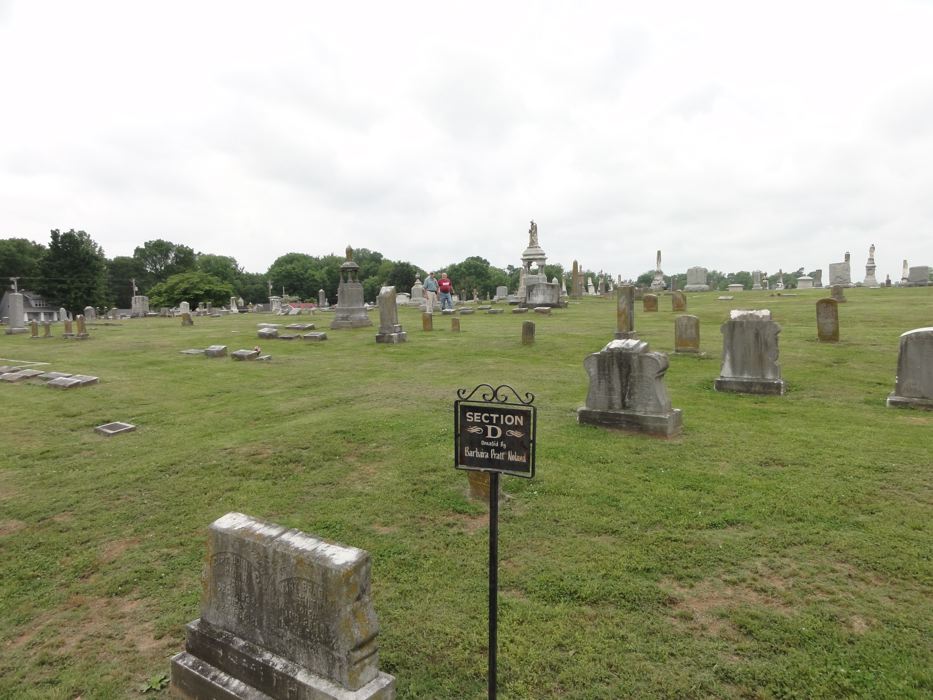
Tom L. Childers & C. Wayne Kilpatrick at the grave of F.W. Smith
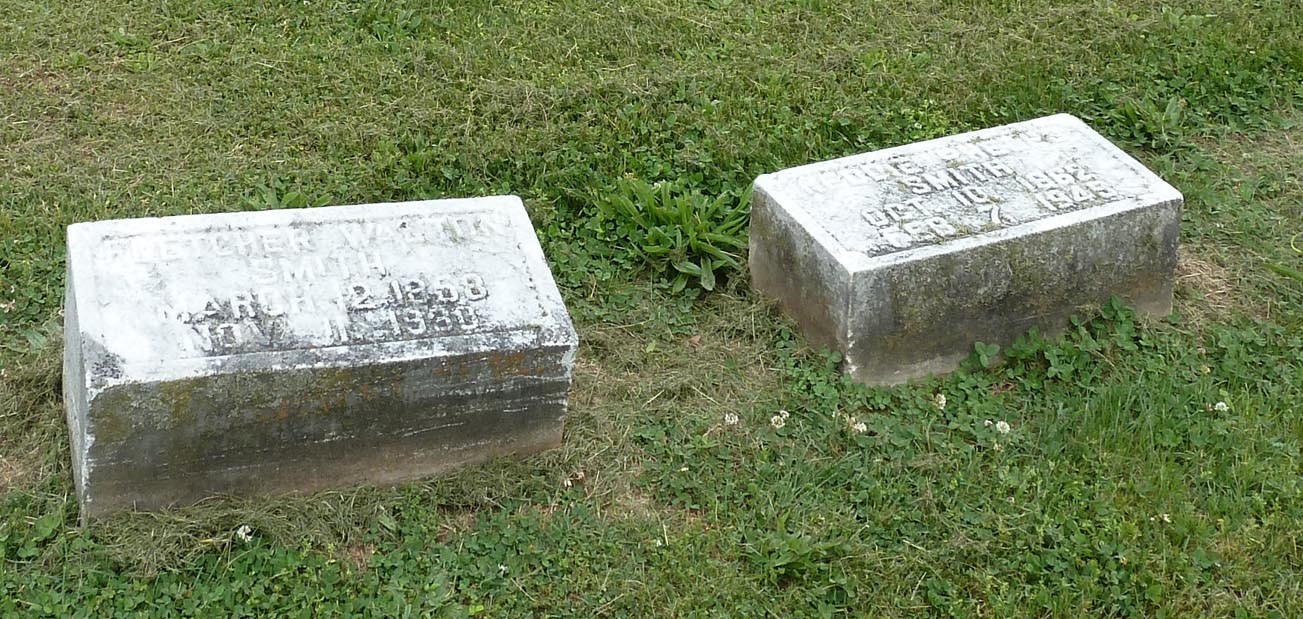
Neddie Phelps Smith
October 19, 1862
February 7, 1949

Roy Champion Smith - November 2, 1898 - August 17, 1920
?? Smith - May 12, 1897 - September 10, 1897
Earl Walton Smith - October 23, 1892 - September 10, 1898
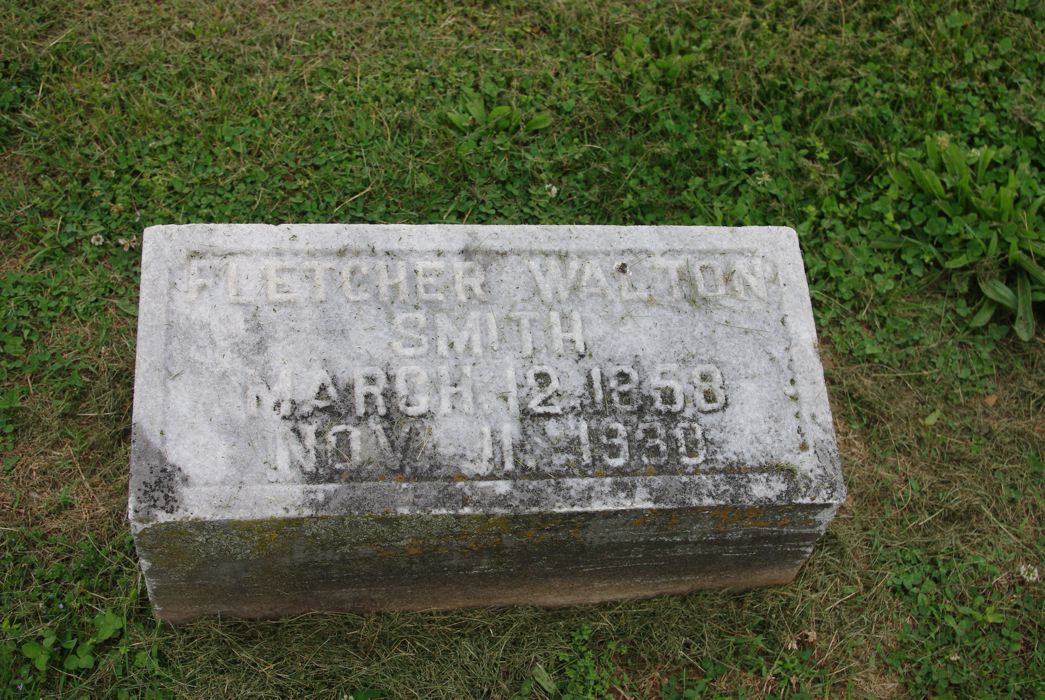
Fletcher Walton Smith
March 12, 1858
November 11, 1930
![]()
